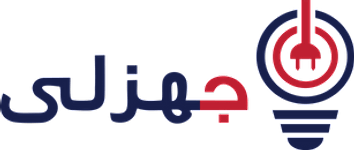During Industrial Revolution 4.0 Era, Palm Oil Plantation Have to Implement Digital Technology
At this time the world is in the era of the 4th Industrial Revolution (Industry 4.0) which is characterized by the implementation of artificial intelligence, super computer, big data, cloud computation, and digital innovation that occurs in the exponential velocity that will directly impact to the economy, industry, government, and even global politics.
The Industrial Revolution 4.0 is characterized by a smart industrialization process that refers to improved automation, machine-to-machine and human-to-machine communication, artificial intelligence (AI), and the development of sustainable digital technology.
Industrial Revolution 4.0 is also interpreted as an effort to transform the process of improvement by integrating the production line (production line) with the world of cyber, where all production processes run online through internet connection as the main support.
Road Map to Industrial 4.0 in Palm Oil Industry
In Indonesia the application of industry 4.0 is expected to increase productivity and innovation, reduce operational costs, and efficiency that led to increase the export of domestic products. In order to accelerate the implementation of Industry 4.0, Indonesia has developed a roadmap for industry 4.0 by establishing five manufacturing sectors that will be a top priority in its development, including food and beverage industry, automotive, electronics, textiles and chemicals.
The five industry sectors are favored considering that they have shown their great contribution to the national economic growth. For example, the food and beverage industry, especially the palm oil industry, has a market share with growth reaching 9.23% in 2017. In addition, the industry also became the largest foreign exchange contributor from the non-oil sector which reached up to 34.33% in year 2017.
The magnitude of the contribution of the food and beverage industry sector can also be seen from the value of exports reaching 31.7 billion US dollars in 2017, even having a trade balance surplus when compared with the import value of only US $ 9.6 billion. This figure also places the palm oil industry as the largest foreign exchange contributor to the country.
In order to increase productivity and efficiency optimally, the technology supporting the industrial revolution 4.0 is imperative to implement, including the implementation of Internet of Things (IOT), Advance Robotic (AR), Artificial Intelligence (AI) and Digitalized Infrastructure (DI).
The structural transformation from the agricultural sector to the industrial sector has also increased per capita income and driven Indonesians from agrarian to economies that rely on an industry-driven value-added process accelerated by the development of digital technology.
In the context of this industrial revolution 4.0, the palm oil industry sector needs to immediately clean up, especially in the aspect of digital technology. This is considering the mastery of digital technology will be the key that determines the competitiveness of Indonesia.
Because if not, then the Indonesian palm oil industry will be increasingly left behind from other countries. If we do not improve our capabilities and competitiveness in priority sectors, we will not only be able to reach the target but will be overridden by other countries that are better prepared in the global and domestic markets.
Digitalization Era in Palm Oil Industry
As a major player in the global palm oil industry, Indonesia needs to clean up soon. Absolute process and operational efficiency is immediately undertaken especially concerning activities involving many manpower such as field work (infield activity) such as crop maintenance, land treatment, fertilizing activity, weeding, harvesting and transporting fruit to weighing and sorting. This is because in this sector there is often time and cost inefficiency.
Digital technology has facilitated a lot of work in the palm oil industry. Now no longer need to make statistical data collected from a number of palm plantations manually. Ease and other advantages of digital technology is able to capture images or photos of fresh fruit bunches, as well as precise location of the garden using a tablet that can access the GPS.
That way, field managers can not only easily track and monitor real-time activity in the garden, but they can also see for themselves the quality of the palm fruit and know exactly which areas are experiencing the problem. And incredibly, it does not need their presence on the field.
In addition to the ease of transferring data from the field to the Excel sheet on the computer and also making reports on the quality of the palm fruit, digitization also facilitates in recording the presence of employees and field workers to then process the data for the purposes of remuneration and incentives.
[ad_2]AUTOPOST by BEDEWY VISIT GAHZLY


